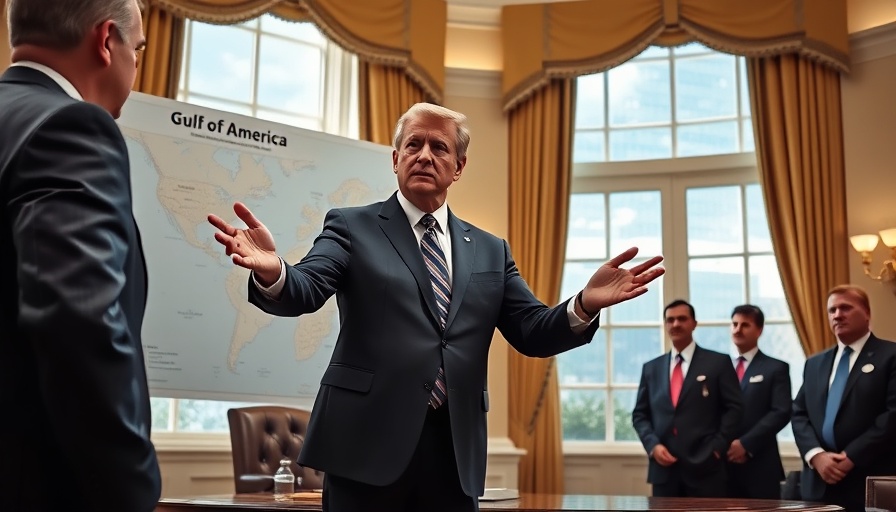
A Wave of Change: The Gulf of America Renaming Bill
The recent push by House Republicans to rename the Gulf of Mexico as the 'Gulf of America' marks a significant shift in how the United States views its geographical identity. This initiative aims to foster a sense of unity and national pride, highlighting the Gulf's integral role in American culture and economy. By taking this step, politicians hope to reshape public perception and encourage domestic tourism and marine stewardship.
Why Rename the Gulf?
Proponents of the renaming bill argue that the term 'Gulf of America' better reflects the waters' connection to the entire nation rather than a single region. This change is touted as a way to promote national pride, similar to how other nations brand their significant water bodies. Critics, however, voice concerns over potential erasure of historical context and the Gulf's established identity. As this debate unfolds, it reflects broader discussions about nationalism and the meanings we attach to the places we inhabit.
Historical Context and Background
The nomenclature of U.S. waterways has a long history filled with cultural and political ramifications. The Gulf of Mexico, a critical maritime area for trade, fishing, and recreation, has been known globally by its current name for centuries.
The renaming efforts echo historical instances when geographic names were changed to reflect emerging national identities or sentiments during pivotal moments, such as the post-colonial period.
Relevance to Current Events
In an era where national identity is often at the forefront of political discussion, the push for the 'Gulf of America' signifies the necessity for governments to address changing societal values. With tourism and commerce heavily relying on the narrative surrounding the Gulf, this new terminology aims to rejuvenate interest and investment in these vital regions.
The Economic Implications
If passed, this renaming may lead to significant economic benefits, particularly for coastal communities. Emphasizing national pride can invigorate tourism campaigns, supporting local businesses and preserving marine ecosystems. Regions surrounding the Gulf are already strategizing marketing tactics to leverage this potential change, mixing community engagement with environmental conservation efforts.
In Conclusion: National Identity vs. Historical Legacy
The ongoing controversy surrounding the renaming of the Gulf of America presents an opportunity for the U.S. to reflect deeply on its national identity, geographical narrative, and history. As political leaders weigh the significance of this proposal, it raises critical questions about how we honor our past while reshaping our present and future.
Stay informed on this evolving story and consider the broader implications of how geography influences national identity and unity.
 Add Row
Add Row  Add
Add 




Write A Comment